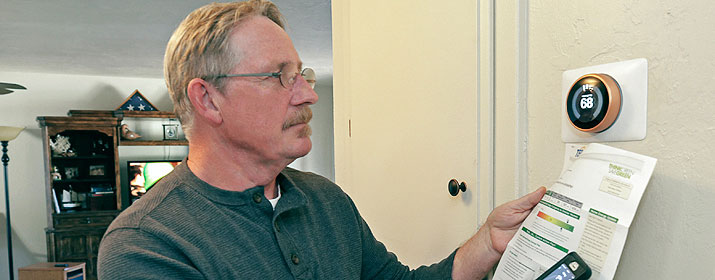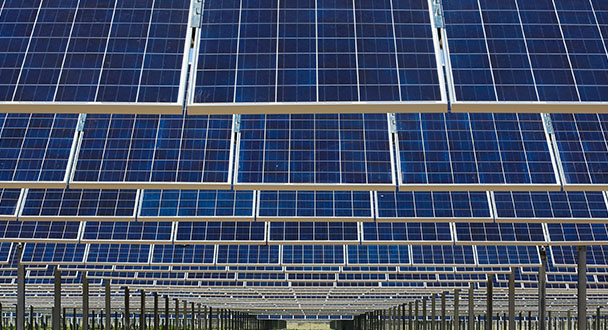
Joe Grabiel likes his smart thermostat so much that he vows to take it with him if he ever moves from his Green Valley home.
Since he installed his smart learning thermostat last year, he’s consistently seen lower electric bills – even during hot summer months when his air conditioner works harder and longer.
Grabiel said the thermostat learned his temperature preferences within a week and was able to program itself to save energy – including automatically going into “away” mode when it sensed no one was home. The thermostat also “relearned” his adjustments and preferences as the seasons changed, helping him avoid heating or cooling during on-peak hours to reduce his electric bills with Tucson Electric Power’s Time of Use pricing plan.
“It’s very easy to program using my mobile phone and the Nest app. I don’t have to think about adjusting the thermostat – it just does it automatically,” he said. “I also like being able to remotely override the settings, such as turning up the heat or air conditioning so that it’s warm or cool when we get home.”
He also appreciates the monthly email reports showing how his energy savings compare with other Nest users. “We’re in the top 20 percent of Nest users in our area,” he said.
Grabiel linked his smart thermostat to his Google account so his family could use Google Home Mini assistant to turn the thermostat up or down with a voice command. Google Nest also allows homeowners to integrate other home functions into their home, such as security camera, alarm systems, lighting and door locks.
Grabiel purchased the smart thermostat online from a retailer that was offering a special price as well as a free home assistant. Plus, he received a $35 rebate from TEP that was applied as a credit on his bill. He figures with the discount, rebate and energy savings, the thermostat paid for itself in just a few months.
Heating and cooling systems are the top energy draws in the average household. Independent studies found that smart thermostats, such as Nest and Ecobee, help customers save as much as 12 percent on heating and 15 percent on cooling costs.
“Small steps can add up to big savings over time,” said Tammy McKay, a TEP Program Manager who specializes in residential efficiency. “Smart thermostats are really an important energy-saving mechanism that give you more control over your energy use.”
TEP residential customers can get a $35 rebate on a qualifying smart thermostat – even if they already have one installed. Rebates are available for up to two thermostats per TEP account.






